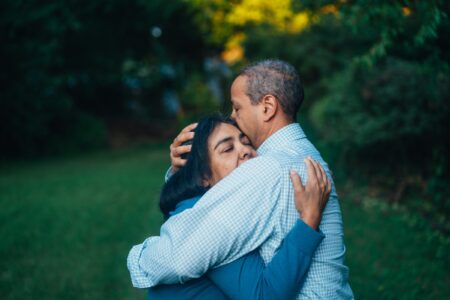Tips For Coping With A Cancer Diagnosis

Coping with a cancer diagnosis seems like a huge undertaking. Not to mention, nobody asked you if you wanted to take it on. Cancer seems to find us when we least expect it.
Consider thinking of “coping” as “managing”. Contrary to how it feels, there actually are things you can control.
We can relate to feeling overwhelmed, afraid and helpless. Those feelings are what inspired SURVIVEiT to create a Start Here Guide, a cancer resource that can provide you with two actionable steps to in your efforts to manage this disease.
While you and your loved ones are pursuing a treatment strategy, you can find ways to cope with this stressful time in your life.
Here are some suggestions for coping with a cancer diagnosis.
Get As Much Information As Your Can About Your Cancer Diagnosis
After a cancer diagnosis, do some research so you can be prepared with questions for your next appointment. Make a list so you don’t forget to ask any of your important questions about your cancer diagnosis and cancer treatment. Our team of cancer survivors have carefully crafted a list of questions you can ask your doctor. Use this list to get started: 21 Questions To Ask Your Oncologist.
Asking the right question as soon as possible can make a huge difference in your journey, and ultimately, path to survivorship.
Select Those You Feel Most Comfortable With & Trust
Sometimes after a cancer diagnosis, people feel the need to protect their family and friends from the news. Open the lines of communication and be honest with the people in your life. It will give you more people to lean on when you need it the most. You can select the people you feel most comfortable with and trust, and don’t feel bad about that.
Accept Help From Your Loved Ones
Your friends and family will want to help you as much as they can during your treatment. By offering to help you around the house, with errands or offers to drive you, they’re showing their support. Accept these loving offers to reduce your own stress and let your loved ones feel they are helping.
Take some time to think of the things that would be nice to have a little help with. For example, grocery shopping, a walking partner, going out for a cup of coffee with a friend, having someone to watch the kids one night a week,
Review Your Priorities
At this time, you may find yourself thinking about your goals and what you really love in this world. Think about what is most important to you and make it a priority.
Lean On Others Who Have Been Where You Are
Many people have been impacted by cancer, whether as a patient, caregiver or loved one. Find other people who feel how you are feeling. You’ll be able to share your experience and gain some insight on what to expect throughout your treatment.
Develop A Coping Strategy That Works For You
Everyone’s cancer treatment and experience are unique, so find strategies that work for you. Here are some ideas you can try:
- Write your thoughts down in a journal
- Work with a pro and con list to help yourself work through difficult decisions
- Speak honestly about your feelings to someone you are comfortable with
- Stay involved with your regular activities (work and hobbies)
- Test different relaxation techniques
- Spend time by yourself to work on the above
